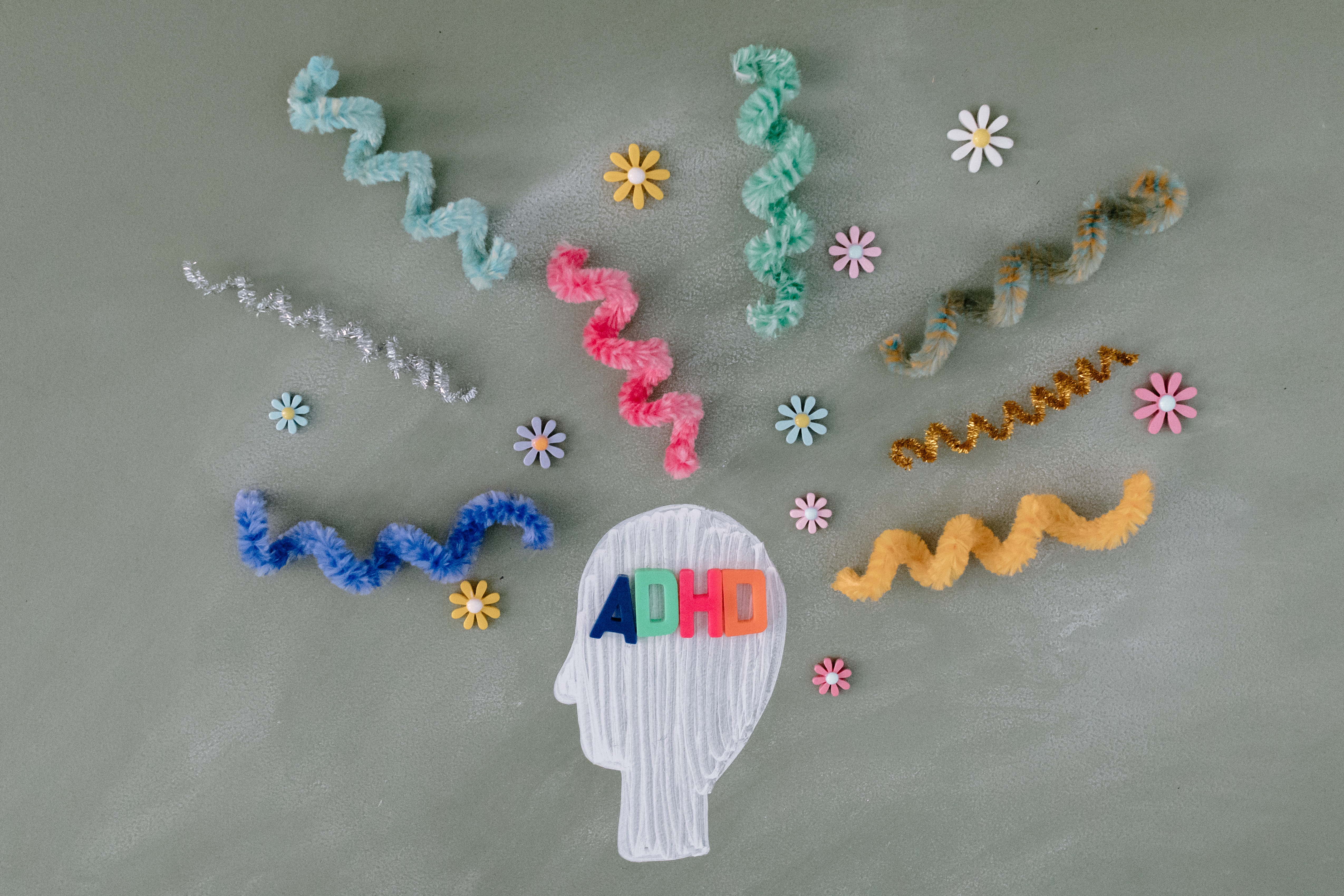Understanding Attention Deficit Hyperactivity Disorder (ADHD)
7 minuteRead

What is ADHD?
ADHD, or Attention Deficit Hyperactivity Disorder is a long-term condition that has an impact on one's ability to pay attention, sit still, and maintain control over their actions. It affects children and teenagers, and it can last until adulthood.
In youngsters, ADHD is the most commonly diagnosed mental illness. It's generally detected in a child's early school years when they begin to have difficulty paying attention. Emotions, actions, and the capacity to learn new things can all be affected. ADHD is not curable or preventable. However, early detection of ADHD, as well as a strong treatment and education plan, can help a kid or adult with ADHD, manage their symptoms.
Keep in mind that ADHD is a condition that can continue well into adulthood. Some adults have never been diagnosed with ADHD. The signs and symptoms might cause problems at work, at home, and in relationships. At an older age, symptoms may present differently; for example, hyperactivity may manifest as severe restlessness. When the demands of adulthood rise, symptoms might become more acute.
What causes ADHD in children and adults?
While experts at leading healthcare institutes across the world continue to investigate the origins of ADHD, recent research has linked the disorder to interactions between genes and environmental/non-genetic variables.
Some factors to consider are:
- Genes
- Smoking, drinking alcohol, or drugs use during pregnancy
- Premature infants
- Complicated pregnancies
- Low birth weight
- Injuries to the brain's frontal lobe
Do children grow out of it?
Some children appear to grow out of ADHD, while others continue to have issues well into puberty and beyond. At the age of 18, around two out of every five youngsters with ADHD still having problems. The major symptoms of ADHD, such as concentration problems, may improve as children get older, but if they don't seek assistance, behavioural issues like disobedience or aggressiveness may worsen. According to a study, boys who are hyperactive and violent, in particular, are shown to be unpopular among their peers. It's crucial to remember that 30-40% of children with ADHD grow up to be successful adults, and this proportion may be improved with the right support. Children with ADHD, on the other hand, who become antisocial or violent at school because they don't fit in are more likely to get into problems as adults. Families and schools may play a critical role in providing assistance to such children rather than blaming them.
Diagnosing ADHD
It must be understood that ADHD is quite difficult to diagnose. There is no test for ADHD; you can't use a blood sample or an X-ray to make a definitive diagnosis. Because many children struggle with self-control at some point, deciding where to draw the line and diagnose ADHD can be difficult. There are several other issues, such as language or hearing impairments, or dyslexia, significant upheavals in a child's life might cause behaviour comparable to ADHD.

The diagnosis of ADHD in children is based on a set of specific criteria. They must exhibit 6 or more symptoms of inattentiveness, or 6 or more symptoms of hyperactivity and impulsiveness, to be diagnosed with ADHD. Additionally, a child must exhibit the following symptoms to be diagnosed:
- Been exhibiting symptoms for at least 6 months.
- Began to exhibit symptoms before the age of 12.
- Symptoms that make their lives considerably more difficult on a social, academic, or occupational level.
- Symptoms that are not just part of a developmental disorder or difficult phase, and are not better accounted for by another condition.
- Exhibiting symptoms in at least 2 different contexts – for example, at home, and at school – to rule out the idea that the behaviour is simply a reaction to specific instructors or parental control.
Adults have it more difficult to identify ADHD since there is considerable debate over whether the symptoms used to diagnose children and teens also apply to adults. Generally, adults with 5 or more symptoms of inattentiveness, or 5 or more symptoms of hyperactivity and impulsiveness are diagnosed with ADHD. Their symptoms should also have a moderate impact on several aspects of their lives, including:
- Underachieving in their job or in school.
- Inability to make or keep friends
- Inability to maintain relationships with partners
- Driving recklessly
Signs and Symptoms
There are three types of warning indicators for Attention Deficit Hyperactivity Disorder- Inattention, Hyperactivity, and Impulsivity.
1. Inattention
- Often ignores or skips information, resulting in thoughtless errors in schoolwork or other tasks.
- Tasks and hobbies that require prolonged mental effort are often disliked. Schoolwork, for example, or preparing a presentation.
- Has trouble maintaining focus on chores or recreational activities. For example, being unable to concentrate during lectures or talks.
- When addressed directly, he doesn't seem to pay attention. Even when there are no visible distractions, their minds are elsewhere.
- Failure to accomplish duties at school or at work due to inability to follow instructions.
- Has a hard time keeping track of chores and activities. Poor time management, for example, or keeping one's possessions in order.
- They tend to lose things that are necessary for activity. Pencils, wallets, books, keys, and spectacles, for example.
2. Hyperactivity/ Impulsivity
- Fidget with their hands or feet and squirm in their seat.
- In circumstances where they are expected to be sitting, they get up and pace. For example, during school hours or office hours.
- When the situation is unsuitable, they run or climb about. Adults and teenagers may experience restlessness.
- Inability to play or engage in leisure activities in a calm environment.
- Being unable to sit comfortably for a lengthy period of time in restaurants or meetings.
- They tend to speak a lot. Completing other people's sentences, for example, or speaking without waiting for their turn in a discussion.
- Having a hard time waiting for their turn. For example, intrudes or disrupts others in games or discussions while waiting in line.
Medication and Treatment

ADHD can be treated with either medication or therapy, but a combination of the two is frequently the most effective. Although the illness may be followed by a GP, treatment is generally handled by a professional, such as a pediatrician or psychiatrist. ADHD medicine reduces impulsivity and hyperactivity, allowing diagnosed individuals to work, learn, and focus more effectively. There are two main categories of medication for children and adults diagnosed with ADHD:
1. Stimulants: Researchers believe that stimulants operate by increasing the amount of dopamine in the brain, which is crucial for concentration.
2. Non-stimulants: They take longer to work and assist people with ADHD improve their concentration, attention, and impulsivity. Non-stimulants are typically prescribed when stimulants haven't performed as well as predicted, or when the side effects are too much, or in conjunction with stimulants to improve treatment effectiveness.
It is important to note that headaches, stomach discomfort, problems sleeping, dry mouth, irritability, anxiety, and weight loss are all common adverse effects of stimulants and non-stimulants.
Therapy

Treatment for ADHD in children, teens, and adults can include a variety of therapy in addition to medication. Additional issues associated with ADHD, such as behavioural or anxiety disorders, can be treated with therapy.
1. Psychotherapy and Psychosocial Interventions: Several psychological treatments have been demonstrated to aid patients and their families in coping with symptoms and improving daily functioning. In addition, in order to realise their full potential and flourish, children and people with ADHD require assistance and understanding from their parents, relatives, and instructors.
Frustration, blame, and resentment may have built up within a family before a kid is diagnosed, especially in school-aged youngsters. To overcome negative sentiments, parents and children may require professional assistance. Parents may learn about ADHD and how it impacts their families from mental health experts. They will also assist the kid and his or her parents in learning new skills, attitudes, and ways of interacting with one another.
2. Behavior Therapy: It helps a child keep track of his actions and teaches him how to alter them properly. You may also establish methods as a parent to guide your child's behaviour to specific events in a positive way. For example, praising him for his behaviour.
3. Cognitive behavioural therapy (CBT): It is a talking treatment that aims to change the way you think and conduct in order to help you manage your issues. A therapist would work with them to modify how they feel about a situation, which might lead to changes in their behaviour.
How to support someone with ADHD?
Read up.
The more you understand ADHD, the more you'll be able to recognise how it affects your friend, coworker, or loved one. Read books and articles to actually understand the reason behind their actions, and get a sense of what it's like to be them.
Avoid the parent-child relationship.
Their symptoms may cause you to feel obligated to always clean up after them, or to behave like a parent or guardian, doing duties for them or protecting them from harm. Try to become conscious of your proclivity for doing so and fight the urge. Your taking over might be demotivating for them, so try to be more upbeat.
Communicate and pay attention.
People with ADHD have a hard time understanding and digesting what others are saying. Keeping the lines of communication open and honest may be quite beneficial.
Think about how you act.
To some level, we all feed off the responses of people around us, especially youngsters who are always learning and developing. Consider whether your own behaviours and emotions are causing or promoting particular ADHD symptoms in your loved one.
Although ADHD is not a new condition, there are innovative approaches to assisting those diagnosed and their families in dealing with it. To provide the greatest possible assistance for families and the best potential future for their children, parents, teachers, and health professionals must all collaborate with compassion.
Write, Record and Answer! Consume Unlimited Content! All you need to do is sign in and its absolutely free!
Continue with one click!!By signing up, you agree to our Terms and Conditions and Privacy Policy.













